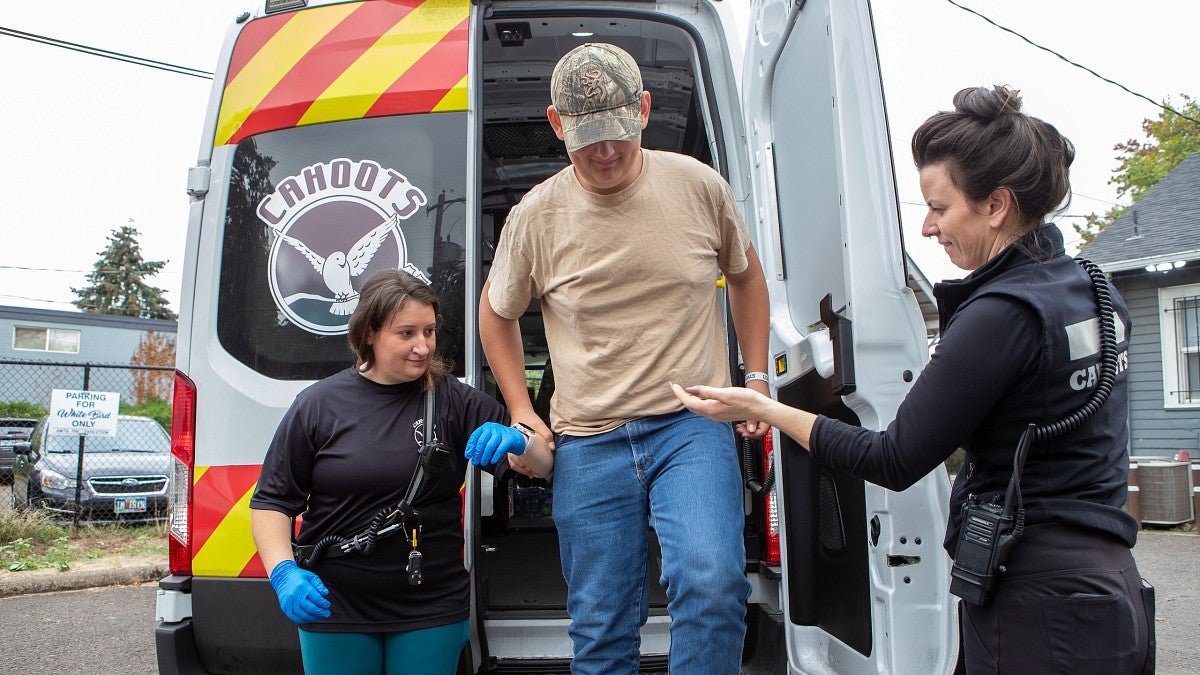
April 2, 2025 - 4:00pm
In 2020, the Eugene-based mental health organization CAHOOTS became a national model for public safety, inspiring cities around the US and on Capitol Hill. The mobile crisis intervention group became a case study of ways to help people in crisis, as well as decrease police response. But five years later, the model faces a budget crunch.
On Thursday, April 10, researchers from the University of Oregon College of Arts and Sciences and Portland State University School of Social Work will share their findings on the impact of CAHOOTS on the Eugene-Springfield community. Members of CAHOOTS will provide insight into the state of the organization. The event is 6 to 7:30 p.m. at Room 180 in Prince Lucien Campbell Hall on the Eugene campus.
The forum includes researchers from CAS’s School of Computer and Data Science. A study by Professor Rori Rohlfs and Nathan Burton, who graduated June 2024, measures the number of 911 calls that CAHOOTS handles. Those calls would otherwise require police response or go answered, according to the researchers.
“We estimate that 17.6% of calls that would have merited police response were handled by CAHOOTS,” the researchers said. “Beyond just handling calls, we found evidence that CAHOOTS actually helps prevent certain situations from becoming emergencies in the first place.”
Research by Rohlfs and Burton also suggests a new way to measure the effectiveness and scalability of CAHOOTS by looking specifically at situations where either CAHOOTS or police could reasonably respond.
Alese “Dandy” Colehour, a master’s student at PSU and a worker at CAHOOTS, conducted a program review of CAHOOTS that suggests people in the Eugene-Springfield area highly value the service.
According to Colehour’s research, 94% agree or strongly agree that the program is an essential part of public safety. Additionally, 78% of personnel from the Eugene Police Department, Springfield Police Department and the Eugene-Springfield Fire Department say CAHOOTS benefits their departments.
The CAHOOTS model has been implemented in other cities, including Portland, Denver, San Francisco, and Olympia. Those cities are likewise seeing benefits," said Claire Herbert, a sociology associate professor at CAS.
“The CAHOOTS model of alternative crisis response has been adopted in other cities across the US, and the emerging research on CAHOOTS is showing how successful these programs are,” Herbert said. “They help connect people without housing, people who with mental health problems, and people struggling with substance use disorders with resources; they alleviate burdens on other institutions like emergency rooms, police, and EMS/fire; and they actually have preventative effects for low-level crime rates.”
— By Henry Houston, College of Arts and Sciences
